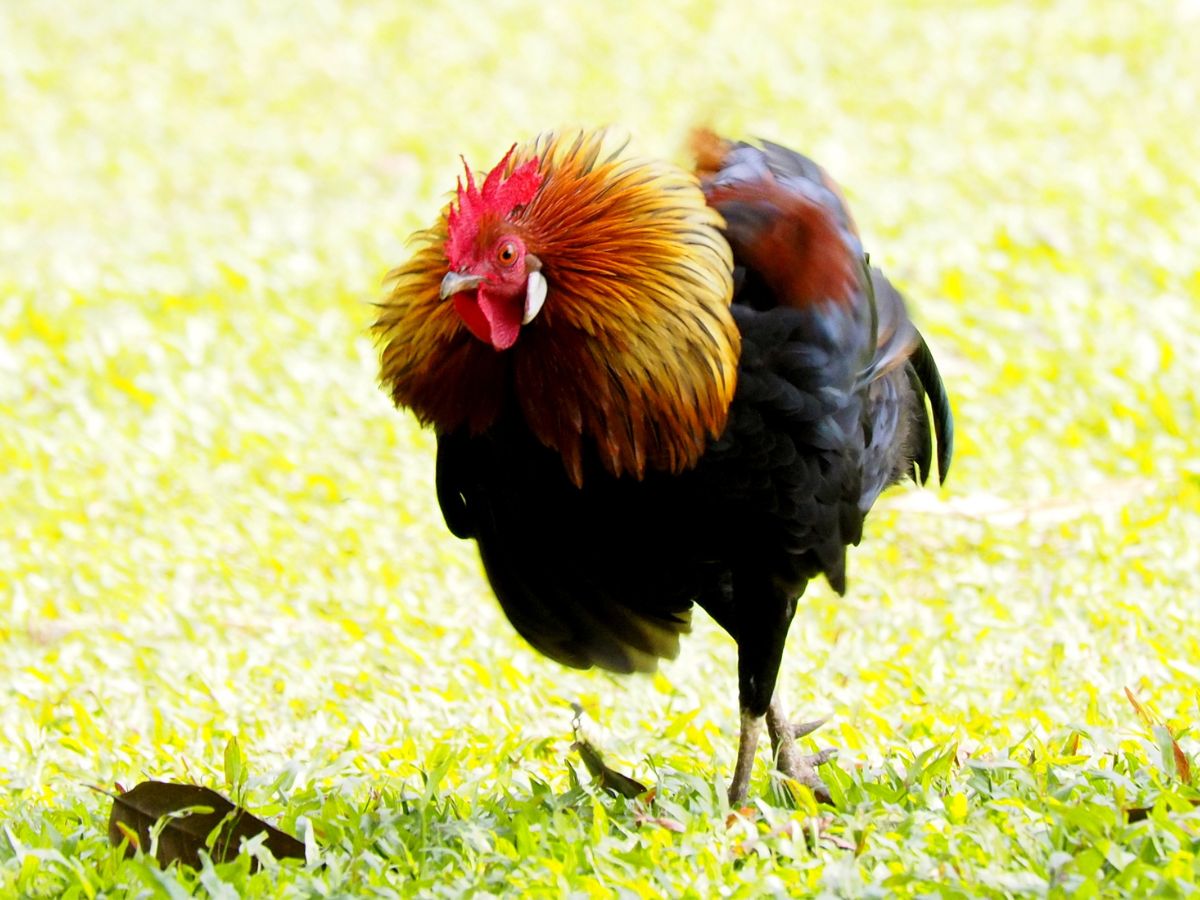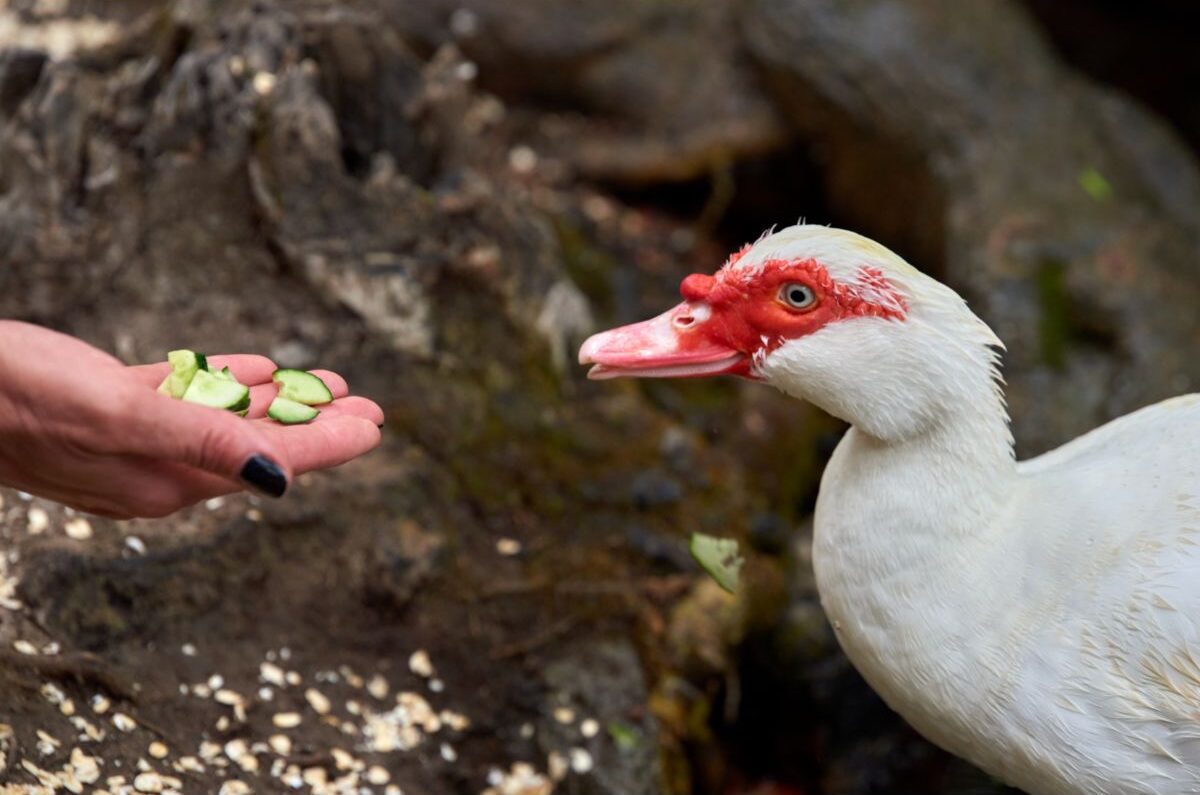Keeping backyard chickens is fun and rewarding; however, dealing with an aggressive rooster can be challenging. In most cases, simply being the boss and establishing your dominance over the rooster will be enough to get him to back down. However, if the aggression persists, you can try several other things, and you should be able to rein in your rooster with time and effort.
10 Ways To Stop A Rooster From Acting Aggressively:
- Never Spook The Rooster
- Do Not Cause Him Any Harm
- Be Consistent In Your Interactions
- Hold Him In Your Arms
- Invest Some Time In His Domain
- Entice Him With Some Treats
- Remove The Rooster From The Hens
- And More …
Contents
1. Never Spook The Rooster
Avoiding anything that could make a hostile rooster feel threatened is one of the most crucial things you can do to stop him from acting aggressively. This means being aware of your body language and tone of voice when interacting with him.
Avoid sudden movements or loud noises around him, as these can startle or scare him. Instead, move slowly and deliberately, and speak in a calm, gentle voice. It’s also essential to avoid eye contact with an aggressive rooster, as he may interpret this as a challenge.
2. Do Not Cause Him Any Harm
Harming your rooster will only worsen the situation and could escalate aggression. If you must physically intervene, do so calmly and carefully.
If a rooster attacks you, you can use a few different things as a deterrent, but the idea is that it is something that scares the rooster without harming him. Some possible deterrents include a spray bottle filled with water or a stick.
When using a deterrent, it is essential not to injure the rooster. If you startle the rooster too much, it may hurt itself in its panic. Just make sure to give him a good scare, and he should back off.
3. Be Consistent In Your Interactions
It is essential to be consistent with your interactions with an aggressive rooster. If you are inconsistent, the rooster will become confused and may become even more aggressive. For example, if you usually let the rooster free-range, but then one day you confine him to a coop, he may become aggressive to get out of the coop.
Similarly, if you usually pet the rooster and give him treats, but then one day you ignore him, he may become aggressive to get your attention. Therefore, being consistent in your interactions with the rooster is crucial to avoid confusion and aggression.
4. Hold Him In Your Arms
Place one hand behind his breastbone and use your other hand to support his legs. Hold him close to your body, so he feels secure.
Spend some time each day holding your rooster close to you. This will help him get used to being handled and make him less likely to view you as a threat. Be gentle and patient, as an aggressive rooster may struggle and try to escape.
5. Invest Some Time In His Domain
Spending some time in the rooster’s territory will help him become accustomed to your presence and may help reduce his aggression. Attempt to spend a few minutes each day in the area where the rooster spends most of his time.
6. Entice Him With Some Treats
If your rooster is used to getting treats, he may be more likely to listen to you and less likely to act aggressively. Try offering him his favorite treat when you approach him, and see if he calms down. If he starts to get aggressive, you can also try giving him a treat as a distraction.
7. Remove The Rooster From The Hens
One of the main reasons why a rooster may become aggressive is because he feels the need to protect his hens. Put him in a separate pen or coop, or keep them apart when they are out in the yard.
Ensure that your rooster still has access to food and water and a place to perch and dust bathe. Provide him with toys or other enrichment items to keep him occupied and distracted from the hens. With time and patience, your rooster should eventually adjust to living without his ladies, and his aggression should subside.

8. Ensure Its Needs Are Met
Provide your rooster with a clean and spacious coop, fresh water and food, and access to roam and forage. Additionally, ensure that the rooster is not overcrowded or living in close quarters with other animals, as this can lead to aggression.
9. Add Another Rooster To Your Flock
It has also been demonstrated that doing this resolves the rooster’s dominance issues. You can manage the rooster’s aggressive behavior and even out the dominance in the flock by bringing in another rooster.
This option either works very well or not at all, as it’s just as likely that your rooster will see the newcomer as a competitor and attack him.
Still, it’s an option to try if all else fails, especially with chicken breeds that are known for roosters getting along with each other, like Australorps, Silkis, and usually Wyandottes.
On the other hand, don’t try it with chicken breeds that are generally known to be territorial. These include the Old English and Indian Game, Shamo and Asil chickens.
10. Never Back Down Or Show Fear
Dealing with a rooster with 3-inch spurs is terrifying. However, even in this situation, show courage and make no retreats. The rooster will probably become more aggressive if you exhibit any signs of fear or weakness.
If you permanently avoid the rooster or back away from him, he will otherwise have the feeling to be above you in the pecking order and try to enforce this hierarchy. If you want to learn more about the pecking order of chickens and how it is established in the flock, you can read more here.
What Makes Roosters Aggressive?
There are many reasons why some roosters may be more aggressive: a rooster’s personality, breed, and genetics all influence how aggressive they are.
Your rooster’s health and what he has been exposed to in the past are also contributing factors. In addition, some of the most common causes of rooster aggression include:
- Territorial Aggression: Roosters will establish a territory around their coop, and each rooster will stake out his ground. Some roosters are more aggressive in defending their territory than others.
- Protecting His Flock: Roosters will also be aggressive towards others, including humans if they are trying to protect their flock. A rooster will do this if he feels his hens are being threatened or feels they are being treated poorly.
- Dominance Issues: If a rooster has been bullied or mistreated by other flock members, he may become defensive and try to assert his dominance.
Conclusion
There are a few possibilities and reasons why a rooster acts out, and every rooster is unique. If you’re dealing with an aggressive rooster, there are a few things you can do to try to calm the rooster down. If you can’t get your rooster under control, it may be best to rehome him.




